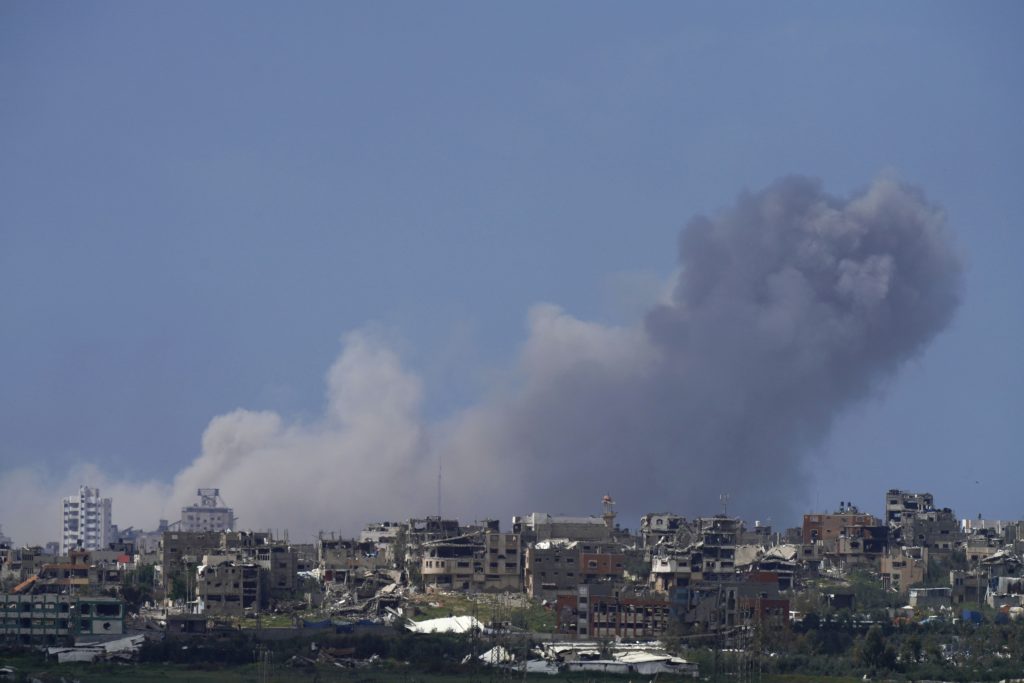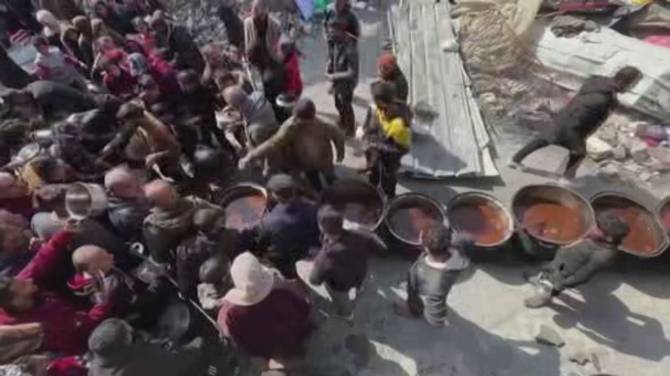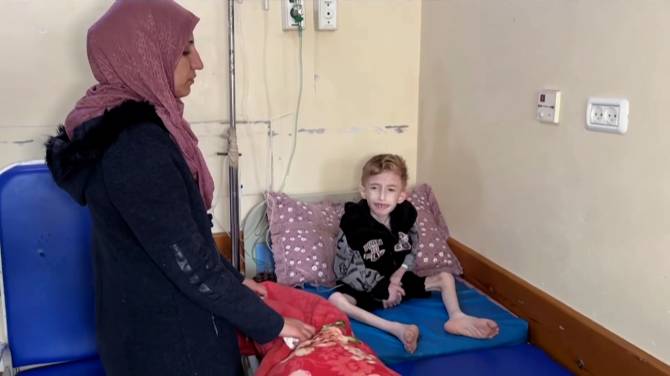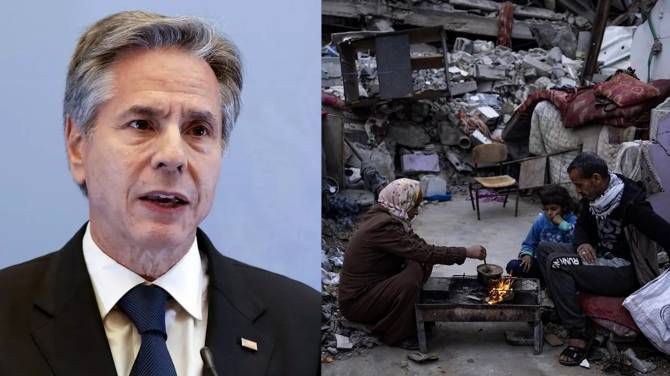Russia and China vetoed a U.S.-sponsored UN resolution asking for a quick and ongoing ceasefire in the Israel-Hamas conflict, in order to safeguard civilians and allow humanitarian aid to reach over two million starving Palestinians. Gaza it aims to protect civilians and facilitate the delivery of humanitarian assistance to over two million hungry Palestinians.
The Security Council vote had 11 members in favor, three against, and one abstention.
Before the vote, Russia's UN Ambassador Vassily Nebenzia stated that Moscow supports an immediate ceasefire, but questioned the wording in the resolution and accused U.S. Secretary of State Antony Blinken and U.S. Ambassador Linda Thomas-Greenfield of misguiding the international community for political reasons. ceasefireThe resolution stated that a ceasefire is crucial.
The proposed resolution did not directly tie to the release of hostages taken during Hamas' attack on Israel on Oct. 7, as was included in the previous version. However, it firmly backed diplomatic efforts to secure such a ceasefire in connection with the release of all remaining hostages.
The Security Council had already passed two resolutions addressing the deteriorating humanitarian situation in Gaza, but none of them called for a ceasefire.
In late October, Russia and China vetoed a U.S.-sponsored resolution that called for breaks in the fighting to deliver aid, protect civilians, and stop arming Hamas, arguing that it did not reflect the global demand for a ceasefire.
The U.S., Israel's closest ally, has vetoed three resolutions demanding a ceasefire, including a recent one backed by Arab nations and supported by 13 council members with one abstention on Feb. 20.
The U.S. put forth a rival resolution a day before the vote, which underwent significant changes during negotiations. Originally, it would have supported a temporary ceasefire linked to the release of all hostages, and a previous version would have endorsed international efforts for a ceasefire as part of a hostage deal.
The vote occurred while Blinken, the top U.S. diplomat, was on his sixth urgent mission to the Middle East since the Israel-Hamas conflict started, negotiating a ceasefire and hostage release, as well as post-conflict plans.
Nate Evans, the spokesperson for the U.S. Mission to the United Nations, described the resolution as an opportunity for the Council to show united support for the ongoing diplomatic efforts and to pressure Hamas to accept the proposed agreement.
Meanwhile, the Security Council's 10 elected members were working on their own resolution, which called for an immediate humanitarian ceasefire during the Muslim holy month of Ramadan, starting on March 10, to be respected by all parties, leading to a lasting ceasefire. It also demanded the immediate and unconditional release of all hostages and stressed the urgent need to protect civilians and deliver humanitarian aid throughout the Gaza Strip.
Palestinian militants killed around 1,200 people in the unexpected attack into southern Israel on Oct. 7, which sparked the conflict, and abducted another 250 people. Hamas is believed to still be holding around 100 people hostage, as well as the remains of 30 others.
In Gaza, the Health Ministry controlled by Hamas stated on Thursday that the number of Palestinians who have died has risen to nearly 32,000. The ministry does not make a distinction between civilians and fighters in its count, but it does report that two-thirds of the deceased are women and children.
This week, the organization that is responsible for determining the seriousness of hunger crises worldwide cautioned that famine could happen very soon in the northern part of Gaza, where 70 percent of the population is suffering from extreme hunger. The report from the Integrated Food Security Phase Classification initiative, or IPC, cautioned that if the conflict escalates, half of the entire population of Gaza could be on the brink of starvation.
The U.S. document expressed serious worry about the possibility of conflict causing famine and diseases for the civilian population in Gaza, as well as the number of undernourished people, and also that hunger in Gaza has reached catastrophic levels.
It stressed the immediate necessity to increase the delivery of humanitarian aid to civilians throughout the entire Gaza Strip and remove all obstacles to providing aid to civilians on a large scale.
Even Israel's closest allies are pressuring the country to simplify the entry of aid into the Gaza Strip, open more land crossings, and reach a ceasefire agreement. However, Prime Minister Benjamin Netanyahu has pledged to continue the military operation in the southern city of Rafah, where around 1.3 million displaced Palestinians have sought refuge. Netanyahu claims it's a stronghold of Hamas.
The final U.S. draft removed language from the original draft that stated Israel's offensive in Rafah "should not proceed under current circumstances." Instead, in an opening paragraph, the council emphasized its concern that a ground offensive into Rafah "would lead to further harm to civilians and their displacement, possibly into neighboring countries, and would have serious implications for regional peace and security.
The U.S. draft, for the first time in a UN resolution, would denounce "all acts of terrorism, including the attacks led by Hamas on October 7, 2023, as well as its taking and killing of hostages, murder of civilians, and sexual violence, including rape."
On Friday, Russia and China vetoed a UN resolution sponsored by the U.S. that called for "an immediate and sustained ceasefire" in the Israel-Hamas conflict in Gaza.
For the first time in a UN resolution, the U.S. draft would condemn “all acts of terrorism, including the Hamas-led attacks of Oct. 7, 2023, as well as its taking and killing of hostages, murder of civilians, and sexual violence, including rape.”






